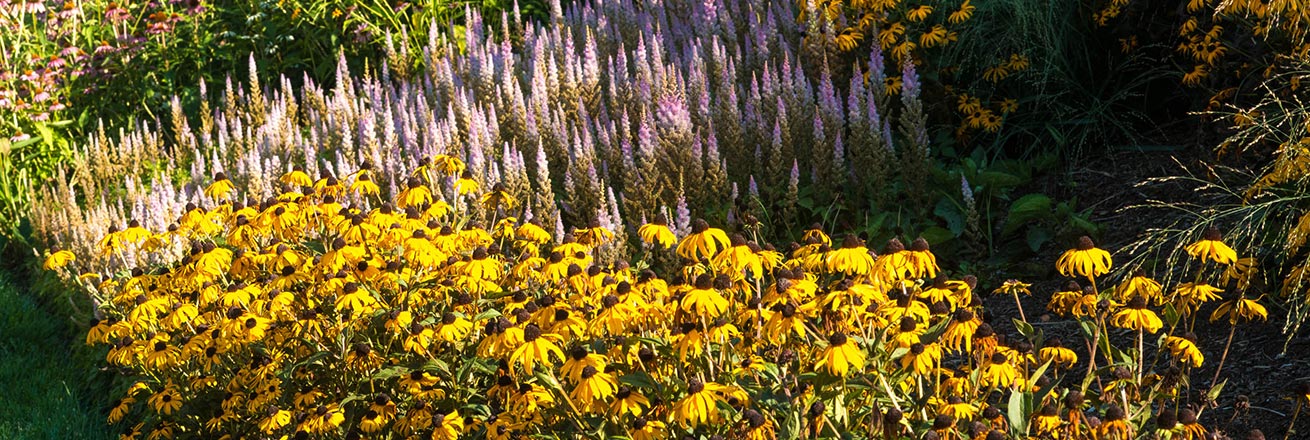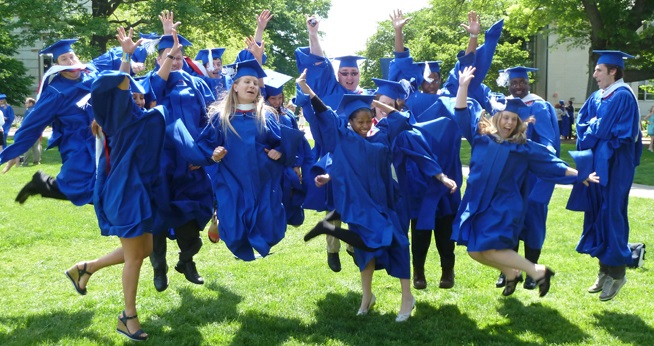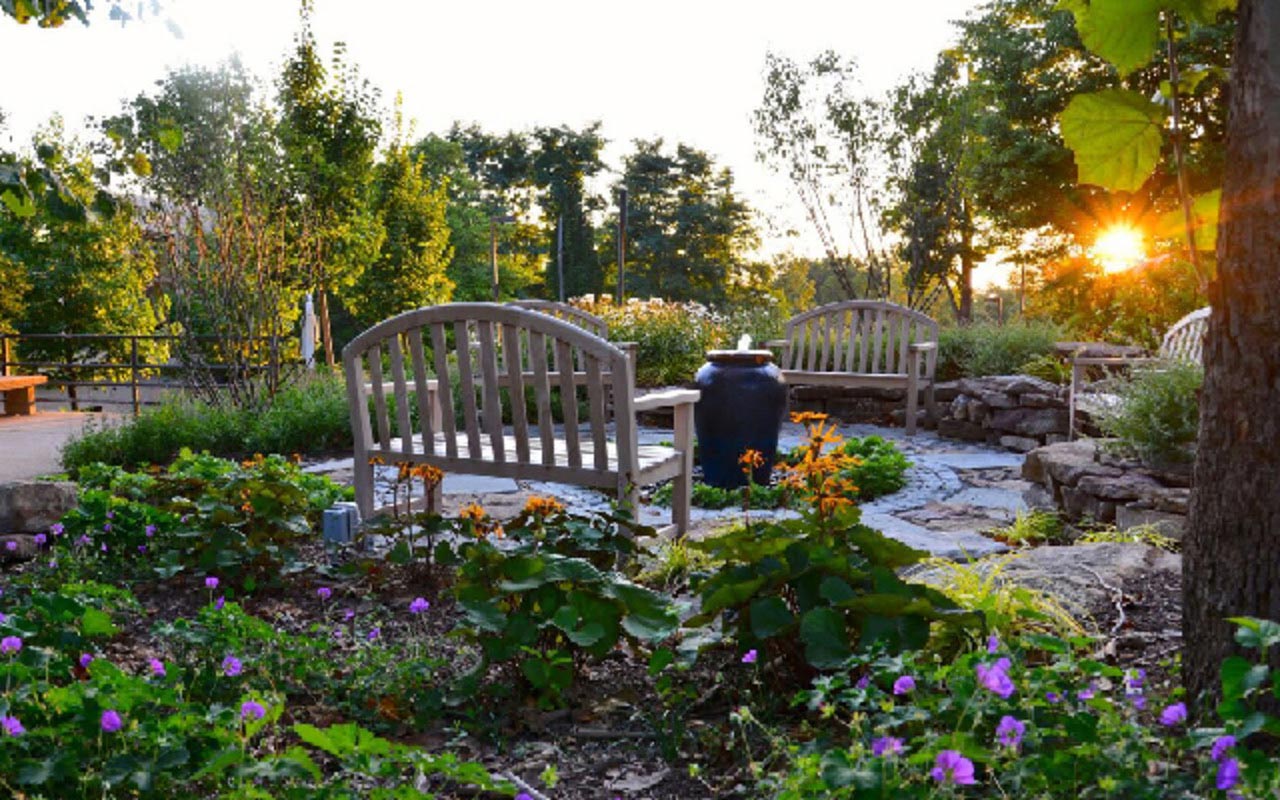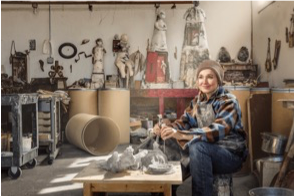You are here: American University Community Relations Newsletter May 2021 Neighborhood Newsletter

AU in the Neighborhood
May 2021

Contact Us
In This Issue
In-person AU commencement ceremonies to be held for 2021 graduates

One clear sign that campus life is returning to normal is the recent announcement that American University will conduct in-person commencement processions. Commencement ceremonies will be held on Saturday – Sunday, May 8 – 9 (Spring 2021 graduates); Saturday – Sunday, May 15 – 16 (Class of 2020); and Sunday, May 23 (WCL). Although restrictions will be in place to comply with COVID-19 health and safety protocols, graduating students nevertheless will get to experience a well-deserved and once-in-a-lifetime celebration for all their hard work.
Health and safety protocols will include:
- In-person processions will be held for graduating students only. Family members and guests will not be permitted to attend.
- Students must complete the Health and Safety Acknowledgement form prior to arriving on campus.
- Face coverings must be worn at all times on campus.
Traffic flow on campus will be limited, with the Butler Pavilion Tunnel and main roadway closed to vehicular traffic throughout commencement weekends.
All participants have been encouraged to use public transportation and reminded of AU’s Good Neighbor parking policy. However, students who plan to drive to campus will be limited to parking in the Katzen Arts Center garage and East Campus Surface Lot.
Parking in Sports Center Garage (SPG) will be limited to essential event personnel and those requiring ADA accommodations (with a state-issued disability permit or plate) only. Students eligible to park in SPG will enter campus through the Fletcher Gate from Rockwood Parkway on the south side of campus.
Parking will not be available in the School of International Service (SIS) garage, and as always, will be prohibited on all neighborhood streets.
American University awarded its first degrees (two doctorates and one master’s degree) in 1916 at a commencement ceremony held in the university’s amphitheater. AU commencements have grown over the years as the university has become larger and more diverse. More than two thousand students from AU’s eight schools and colleges participate in commencement ceremonies each year. This year’s ceremonies will be AU’s 141st commencement.
New Sustainability Plan Pushes AU Forward for Next Five Years

When AU became the first carbon neutral university two years ahead of schedule in 2018, the Office of Sustainability staff began their quest for what’s next.
Now, AU has announced these next steps in the university’s sustainability work, a new five-year plan that reflects AU’s Challenge Accepted brand campaign. This third campus action plan follows the 2010 Climate Plan and the 2014 Sustainability Plan.
“American University is proud of our history of sustainability which includes becoming the first research university in the nation to reach carbon neutrality,” said AU president Sylvia Burwell. “Our work to reduce our environmental footprint continues with our new sustainability plan – an exciting and ambitious roadmap for AU as we continue to deepen our commitment to creating a healthier planet. We know that our entire community plays a role in our success, and we look forward to seeing results from our new sustainability efforts across campus.”
The new plan has three sections – engagement, environment, administration – and an ambitious 45 new goals written by the Sustainability Advisory Committee and the Office of Sustainability. The team developed plans over the past three years through listening to the AU community and by aligning their efforts with the climate work being done by DC and the United Nations. The goals dovetail with the district’s progressive Sustainable DC plan, which provides a framework for new construction, energy, and water usage.
“It’s really exciting that we’re in uncharted territory because so few universities have hit this point of carbon neutrality,” said Megan Litke, director of sustainability programs. Office of Sustainability. “So now we’ve figured out where to go next, and we’re ready to bring the community into it. I think that’s the expansion of the conversation beyond carbon emissions and into the broader sustainability problems and how they impact our communities.”
In the engagement section, the plan includes goals such as adding more courses related to sustainability, wellness goals, making outdoor spaces more accessible, and connecting sustainability work with environmental justice. The section also includes campus and community engagement and outreach, boosting sustainability literacy and including the community in partnerships and education on sustainability.
The university’s plan also details goals related to operating and constructing green buildings in the environment section. The plan pushes towards changes that would impact the look of campus.
The campus tree canopy will be expanded and diversified, and the university will expand edible plants and gardens. The plan aims to achieve zero waste by 2030 by eliminating single-use plastics, increasing composting and recycling, and decreasing overall waste. The university will also support sustainable goods vendors and reduce paper usage and paper waste on campus.
Students will notice a difference in dining options, with a goal that expands vegan dining options and increases sustainably or ethically produced food.
“Many of the goals in the plan that will impact students came from student comments, so it came from areas where students saw we could improve,” Litke said.
Any new construction prioritizes energy efficiency and prepares for future climate disruptions including temperature increases and heavy rain.
The campus will increase the number of solar panels and include solar energy in any new construction. The Office of Sustainability will conduct a campus review using LEED tools to monitor efficiency, water, waste, and air quality.
Litke said the plan’s goals go beyond the next five years, but the everchanging research in sustainability and technology requires flexibility in planning.
“Three years from now, we may have the chance to take advantage of a technology that doesn’t exist right now,” Litke said. “We really wanted to create a plan that could be adaptable to changes. Within the next five years, it will be time to reevaluate where we are in the district and globally. But the work will continue on.”
Calendar and Events
Women On Wednesdays: Karen Tumulty – The Triumph of Nancy Reagan
May 12, 6 – 7 p.m.
Virtual Meeting Room
As part of the Women on Wednesdays series, join AU's Women & Politics Institute and the First Ladies Initiative for a virtual conversation with WPI Executive Director Betsy Fischer Martin and Washington Post political columnist, Karen Tumulty, author of the new book, The Triumph of Nancy Reagan, the “definitive biography of the fiercely vigilant and politically astute First Lady who shaped one of the most consequential presidencies of the 20th century.”
RSVP: https://www.crowdcast.io/e/karen-tumulty.
DIY Maker Culture
May 12, 6 – 7:30 p.m.
Virtual Meeting Room

The social significance of collaborative spaces and educational initiatives that facilitate DIY (Do it Yourself) and DIWO (Do it With Others) practices that stimulate cross-cultural and interdisciplinary project opportunities.
An After Hours / Drinking About Art virtual soirée creating a dynamic online social space for the arts & cultural communities to share ideas and aspirations during these extraordinary times of crisis.
To Register and Save Your Spot: https://www.crowdcast.io/e/raw-hope-2021-panel4/register
Raw Hope of Humanity Rising: Online Public Dialogues for 2021
May 12, 6 p.m.
Virtual Meeting RoomThis dialogue responds to the extreme challenges of the moment, using online civic participation as a platform for advocacy and critical dialogue: connecting artists, activists, and changemakers to share perspectives and overcome constraints. To learn more:
https://thirdspacenetwork.com/raw-hope/.
Uncertainty and Economic Activity: Global Perspectives
May 13 – 14, 9:50 a.m. – 12:30 p.m.
Virtual Meeting Room
The COVID-19 pandemic has triggered a massive spike in risks and uncertainties. Following the success of the first three conferences, American University, International Monetary Fund, and Federal Reserve Board will jointly organize the 4th biennial conference.
RSVP: https://american.co1.qualtrics.com/jfe/form/SV_3gGODREhq1XJzCu
James Renwick Alliance Distinguished Artist Series
May 23, 2 – 3 p.m.
Virtual Meeting Room

Christina Bothwell studied painting at the Pennsylvania Academy of Fine Arts, in Philadelphia, Pennsylvania, before teaching herself how to work with ceramics, and then cast glass. She has had eleven solo exhibitions of her work since 2006, most recently at the Fort Wayne Museum of Art, in Indiana. Her sculptures are in the public collections of the Cincinnati Museum of Art, Ohio, the Glasmuseet Ebeltoft, Museum of Contemporary Glass, Denmark, SMOG (Shanghai Museum of Contemporary Glass Art), China, the Tutsek-Stiftung Foundation, Germany, the Fuller Craft Museum, Massachusetts, the Smithsonian Museum of Art’s Archives of American Art, and several other major museums. Register at: https://www.jra.org/all-jra-events/christina-bothwell.
Black/White
May 25, 6 p.m.
Virtual Meeting Room
Third Space Network (3SN) and its Creative Director Randall Packer, known internationally for pioneering new music theatre & digital performance, presents Black/White, a response to racial polarization on the one-year anniversary of the murder of George Floyd. The work situates two men: one black, one white, one a singer, the other a dancer, two individuals who must negotiate distant worlds, distant neighborhoods, distant lives, and different skin, a reconciliation through the language of image, music, rhythm, collage, and movement, co-mingled in the immaterial space of the Network. For more information: https://thirdspacenetwork.com/blackwhite/
